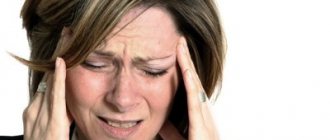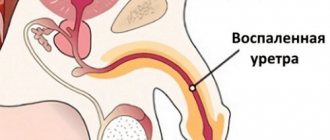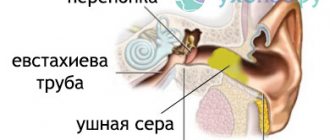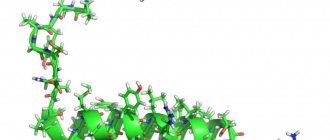In women by the age of fifty, reproductive function declines. In particular, the level and ratio of sex hormones, which determine the functioning of many organs and systems, change.
There is a gradual decrease in the hormone estrogen. This is why the characteristic symptoms of menopause occur. One of these symptoms during menopause and menopause is hot flashes, accompanied by a feeling of heat and chills.
Menopause and hot flashes
Menopause is one of the stages of the natural decline of hormonal function, which is called menopause. It is known that menopause covers several periods during which physiological changes occur in the female body.
Climax includes the following stages.
- Premenopause. This period may span several years. The onset of perimenopause means the occurrence of changes in the functioning of the reproductive system, which are noted several years before the complete cessation of menstruation.
- Menopause. A stage can be described as a period of time that includes the last menstruation and the next twelve months.
- Perimenopause. This period begins several years before menopause and lasts for the next two years.
- Postmenopause. This is the final stage of menopause, followed by old age. Postmenopause lasts until 65-69 years.
Menopause occurs differently in women. The timing of the onset of menopause also varies. Quite often, menopause and menopause are accompanied by unpleasant phenomena and signs that reflect changes in the functioning of organs.
Hot flashes involve a subjective sensation of heat or chills. Hot flashes may be accompanied by excessive sweating, dizziness, palpitations, and redness of the facial skin. Hot flashes often occur at night and in some cases can reduce the patient’s quality of life.
The mechanism of occurrence of fever and hot flashes is closely related to vasomotor disorders. The altered level of hormones affects the vasomotor center, which is located in the brain. This center is directly responsible for the narrowing and expansion of the lumen of the arteries. When the vasomotor center malfunctions, a temporary increase in vascular diameter appears. This increase is irregular and not associated with external reasons. As a result, blood rushes to the skin, which is accompanied by hot flashes and a feeling of heat.
During menopause, the functioning of the autonomic nervous system is disrupted, which affects the functioning of all organs and blood vessels. Changes in the functioning of the nervous system cause various emotional disorders. Metabolism also undergoes changes. Thus, the occurrence of tides is a consequence of various reasons.
To alleviate the symptoms of menopause, such as hot flashes, it is necessary to identify the causes of their occurrence. With the help of medications, homeopathic and folk remedies, proper diet and exercise, the unpleasant symptoms of menopause, such as hot flashes and fever, can be significantly alleviated.
Sweating and fever during menopause - how to avoid them
In order to prevent the occurrence of hot flashes in time, you should know exactly their symptoms. What do women most often feel during this period:
- an unusual feeling of a rush of warmth to the body, it rolls like a wave and envelops the whole body;
- redness of the skin in the upper part of the body - it is noticeable on the face, neck, arms, chest;
- often there is a spasmodic headache, severe nausea and dizziness due to a sharp increase in body temperature;
- perspiration appears on the body, sweating increases;
- Often there is a feeling of suffocation in the chest, the level of anxiety and restlessness increases;
- the rush ends with severe chills, reminiscent of a fever due to a viral disease.
Most often, hot flashes occur in the late evening or at night - a woman cannot get a good night’s sleep and feels tired and exhausted in the morning. It is recommended not to overeat at night, drink herbal infusions with a calming effect - chamomile, mint, lemon balm.
Causes of hot flashes
Estrogens have a greater effect on the functioning of the cardiovascular system. Gradually, during menopause, the level of estrogen drops, which causes a kind of compensation in the form of an increase in the production of gonadotropic hormones of the pituitary gland. Thus, a pathological condition develops, manifested by a significant amount of hormones that stimulate the production of estrogen. However, due to the fading of the functioning of the ovaries, an insufficient amount of estrogen is observed. Gynecologists call this condition hypergonadotropic hypogonadism.
Changes in hormonal balance cause changes in the functioning of target organs. First of all, we are talking about the functioning of the cardiovascular system. Over time, a woman begins to experience the first signs of menopause, which include hot flashes and a feeling of heat.
Thyroid dysfunction
The thyroid gland performs a number of important functions in the body. In particular, the condition of the thyroid gland depends on:
- body mass;
- metabolism;
- libido;
- heat exchange;
- emotional state of a woman.
During menopause, the thyroid gland changes its functions, which manifests itself:
- irritability;
- tearfulness;
- anxiety.
After menopause, the following symptoms occur:
- dry hair, skin;
- memory impairment;
- decreased performance;
- the appearance of drowsiness and chills.
During menopause, it is important to monitor the functioning of the thyroid gland and correlate the level of its hormones and the pituitary gland. Changes are considered normal when there is a decrease in hormones of both the thyroid gland and the pituitary gland.
When the functions of the pituitary gland are activated, a woman may notice the following manifestations:
- heat;
- tremors and convulsions;
- heartbeat;
- weight loss;
- increased sweating and thirst;
- nervousness.
When the functioning of the thyroid gland deteriorates, the following symptoms occur:
- weight gain;
- memory impairment;
- heart attack;
- osteoporosis.
Disorders of the autonomic nervous system
Quite often, during menopause, vegetative-vascular dystonia occurs, which includes signs of a malfunction in the cardiovascular and nervous systems. During menopause, hormonal changes occur that directly affect the brain, central nervous system, heart and blood vessels.
A decrease in estrogen during menopause leads to the following consequences:
- poor circulation, which is manifested by hot flashes, fever and sweating;
- pressure surges, heart rhythm disturbances;
- weakening of the tone of the vascular wall and the appearance of deposits in them, which lead to a deterioration in the blood supply to the heart muscle and brain;
- exacerbation of emotional reactions;
- disturbances in metabolic processes that cause the development of diabetes mellitus and malfunction of the thyroid gland.
The following factors provoke VSD in menopause:
- unhealthy diet with excessive consumption of sugar and fats;
- low physical activity and lack of fresh air;
- stress;
- smoking.
Symptoms of VSD during menopause include:
- decreased performance;
- getting tired quickly;
- pressure surges;
- cardiopalmus;
- panic attacks;
- headache;
- bitterness in the mouth;
- pain in the heart area;
- frequent urination;
- lack of sexual desire.
Diabetes
Diabetes often develops during menopause due to hormonal imbalance. This is facilitated by:
- metabolic disorders;
- vascular disorders and pressure surges;
- heart rhythm disturbances;
- obesity;
- osteoporosis.
These are the so-called factors of aging of the body, which are called insulin-resistant state. In diabetes mellitus, blood glucose levels increase. With a decrease in the amount of sex hormones, disturbances in insulin production and glucose tolerance are observed. These phenomena often occur during menopause.
With diabetes, menopause may occur earlier. Symptoms of diabetes mellitus include:
- dryness of the vaginal mucosa;
- frequent inflammatory processes in the reproductive sphere;
- decreased libido;
- heart pain;
- psycho-emotional manifestations, for example, irritability and depression;
- tides;
- osteoporosis in underweight women.
Type 2 diabetes often develops during menopause.
Malfunctions of the adrenal glands
The adrenal glands are part of the endocrine system. Their main function is the production of cortisol, corticosterone, the synthesis of adrenaline and norepinephrine, sex hormones, and control of water and electrolyte balance.
It is known that the adrenal glands can synthesize estrogens. However, during menopause, significant changes in the functioning of the adrenal glands can occur, particularly accompanied by increased blood pressure and increased heart rate. Some women during menopause develop hyperandrogenism, manifested by:
- hair loss;
- acne;
- increased skin oiliness;
- the appearance of hair on the stomach and chest.
During menopause, the functioning of the adrenal glands is disrupted, which may be accompanied by the appearance of hot flashes and a feeling of heat.
Malignant neoplasms
Sometimes the cause of hot flashes is malignant tumors, which often develop in menopausal women due to various changes that occur in the body. In particular, a feeling of heat may appear with an adrenal tumor. This is why you should not ignore such a symptom as hot flashes. In these cases, mandatory differential diagnosis is necessary to exclude more serious pathologies.
Infectious diseases
Many infectious diseases are accompanied by a rise in temperature as a reaction of the immune system to the inflammatory process. If the temperature rises to low-grade temperatures, the woman may experience chills. At high temperatures, a feeling of heat often occurs, which is similar to the manifestations of hot flashes.
Side effect of drugs
A feeling of heat during hot flashes often occurs while taking certain medications. It is known that a feeling of heat and increased sweating are observed when using drugs as part of drug therapy for cancer. In particular, hot flashes may occur when taking Tamoxifen, which is used to treat breast cancer.
Provoking factors
The frequency and intensity of hot flashes depends on the characteristics of the female body, lifestyle and emotional state. The occurrence of hot flashes in women during menopause is influenced by the following factors:
- ambient temperature;
- work in a poorly ventilated and stuffy area;
- consumption of spicy, salty foods, alcohol, coffee, which stimulate blood circulation, cause stimulation of the nervous system, increased heat generation;
- the use of fat-burning drugs for weight loss;
- taking medications during menopause that speed up blood circulation, increase heart rate and increase blood pressure;
- severe anxiety and stress;
- wearing clothes made of synthetics or that are not appropriate for the season;
- intense physical activity.
Preventive measures
For preventive purposes, gynecologists recommend taking vitamin supplements that include magnesium and calcium. This is necessary to maintain and strengthen bone tissue in the body. You should stop smoking and reduce alcohol consumption to a minimum. You need to maintain a balance of nutrition.
During menopause, it is necessary to eat fruits and vegetables, herbs, fish and cereals. Playing sports or light physical activity will improve your overall physical and emotional well-being. You need to rest more and avoid stress - and then hot flashes during menopause will disappear. Treatment without hormones, combined with preventive measures, has a very beneficial effect on the body, relieving unpleasant symptoms.
Clinical picture
As a rule, hot flashes and a feeling of heat occur in patients at the first stage of menopause, that is, in premenopause. Hot flashes can persist for ten years. However, for most women, a few years after menopause, the feeling of heat disappears.
Depending on the duration of the hot flashes, the doctor may suggest various diseases. In particular, if hot flashes persist and are accompanied by fever, it is necessary to be examined for hyperthyroidism, which means increased production of thyroid hormones. Hot flashes may indicate tumors of the adrenal glands, ovaries, mammary and pancreas, and pituitary gland.
15% of menopausal women do not experience hot flashes. This indicates a smooth hormonal change, in which the vasomotor center does not suffer. However, more than 80% of women experience heat and hot flashes. Accordingly, there are several degrees of severity of this pathological condition:
- mild, meaning up to ten episodes per day;
- average, meaning the occurrence of up to twenty attacks in combination with some other symptoms of menopause;
- severe, characterized by the presence of more than twenty episodes, as well as pronounced pathological signs of the cardiovascular system.
With severe hot flashes, the woman loses her ability to work.
Hot flashes are accompanied by the following symptoms:
- heat;
- sweating;
- tingling fingers;
- redness of the facial skin;
- dizziness;
- heartache;
- cardiopalmus;
- lack of air.
It is noteworthy that night hot flashes are usually more pronounced. The woman experiences severe sweating. In some cases, it is necessary to change underwear and bed linen. The quality of sleep suffers significantly. In the morning I feel tired and have a headache. Hot flashes in some cases can significantly worsen the patient’s quality of life.
Diagnostics
Depending on the duration of hot flashes, a specialist may suggest various diseases. If hot flashes persist, accompanied by fever, it is necessary to exclude hyperthyroidism, which means increased production of thyroid hormones. Hot flashes may indicate tumors of the adrenal glands, mammary and pancreas, ovaries, and pituitary gland.
Diagnosis of hot flashes includes the following types of research:
- determination of the level of sex steroids, thyroid and adrenal hormones;
- exclusion of inflammatory diseases through a smear on the flora, bacterial culture, PCR analysis for sexually transmitted infections;
- Ultrasound of internal organs;
- clinical blood and urine tests;
- detection of tumor marker levels.
If necessary, CT and MRI are performed, as well as consultations with other specialists.
Ways to relieve symptoms
You can relieve the feeling of heat and other symptoms during menopause with the help of medications, folk, physiotherapeutic and homeopathic remedies, exercise and diet.
Medications
It is known that the basis of the pathological condition during menopause is a violation of hormone levels, which can be alleviated with appropriate therapy. Tablet preparations include two components:
- estrogens;
- gestagens.
Modern hormonal drugs do not promote weight gain and do not affect metabolic processes. In order to improve tolerability, the drugs contain a reduced dose of estrogens and an optimized amount of progestin components.
Hormonal medications can help relieve hot flashes and other symptoms of menopause:
- emotional disorders;
- osteoporosis;
- atherosclerosis.
Medicines can relieve discomfort and eliminate:
- hair loss;
- urinary incontinence;
- sexual disorders.
Despite the fact that hormonal drugs can significantly alleviate symptoms during menopause, in some cases their use is contraindicated:
- malignant tumors;
- acute thrombophlebitis;
- renal or liver failure;
- bleeding.
In such cases, the use of homeopathic remedies and phytoestrogens is recommended. A mandatory step in the presence of fever and hot flashes during menopause is the prescription of medications that normalize the functioning of the central nervous system, as well as improve metabolic processes.
To relieve the symptoms of menopause, doctors prescribe the following medications:
- vitamins A, C and E;
- tranquilizers, for example, Grandaxin;
- neuroleptics.
Traditional medicine
You can alleviate the manifestations of hot flashes during menopause with the help of folk remedies. Doctors advise taking:
- sage tea;
- blackberry leaf tea;
- valerian infusion.
To alleviate the condition, it is necessary to use medicinal herbs in courses that do not exceed two months. You can relieve symptoms, such as fever, with the help of an herbal mixture of the following plants:
- chamomile;
- yarrow;
- juniper berries;
- Melissa.
When treating, one should take into account the presence of other gynecological pathologies, in which the use of folk remedies may be contraindicated.
Homeopathic remedies
These drugs include plant materials and poisons, the action of which can alleviate the symptoms of menopause. In general, homeopathic remedies are safe, but should only be used after consulting a doctor.
Homeopathic medicines stimulate the female body's adaptability to various changing conditions. They are able to restore adaptive capabilities by stimulating certain receptors. In addition, homeopathic remedies eliminate headaches and nervous excitability, and have an antispasmodic and anti-inflammatory effect.
To relieve hot flashes and fever, gynecologists recommend using the following medications:
- Remens;
- Klimakt-Hel;
- Klimaktoplan.
As an alternative to hormonal treatment, phytoestrogens can be used to ease the symptoms of menopause. Such drugs have a less pronounced effect. However, the risk of adverse reactions is minimal.
Phytoestrogens are similar to female estrogens. Phytoestrogens can relieve hot flashes and reduce the risk of vascular, heart, endometrial and breast diseases.
Physiotherapy
In the absence of contraindications, the symptoms of menopause can be alleviated with the help of physiotherapy. After a preliminary consultation, the patient may be prescribed the following procedures:
- collar with novocaine according to Shcherbak;
- electroanalgesia;
- galvanization of the brain;
- general massage;
- massage of the cervical-collar area.
Sanatorium-resort treatment is very useful. It is advisable to use the autumn period to improve your health. Gynecologists recommend choosing resorts with mineral waters.
The following have a beneficial effect:
- balneotherapy;
- radon baths;
- hydrotherapy.
At home, you can take baths with a water temperature of no higher than 37 degrees. You can use medicinal herbs or pine extract. To relieve hot flashes, they also take a contrast shower in the morning and take cool foot baths in the evening.
Physical training
Regular physical activity and walking in the fresh air have a beneficial effect on the female body during hormonal changes. You can also relieve hot flashes with regular exercise. It is advisable to do light exercises daily, as well as breathing exercises. When the tide starts, you can inhale from your stomach, count to eight, and then exhale. Inhalation and exhalation are performed slowly several times a day.
To normalize the functioning of the pelvic organs, it is useful to perform the following exercises.
- From a lying position with your knees bent, slowly raise your pelvis, while pulling in the muscles of your buttocks and perineum.
- From a sitting position, bring your knees bent and then spread them in different directions.
- From a position on all fours, do the cat exercise, arching your back and then arching your lower back.
Diet
There is no special diet to relieve fever during menopause. However, consuming and avoiding certain foods may alleviate the condition to some extent and prevent the onset of fever.
Obesity contributes to the emergence of various pathologies. That is why it is advisable to maintain normal body weight. You can alleviate the symptoms of menopause by consuming plant foods and dairy products, which improve intestinal function. It is recommended to exclude spicy, salty and spicy foods, limit animal fats and baked goods.
Smoking and alcohol should be avoided to relieve menopausal fever. Excessive consumption of strong tea and coffee can cause an attack of sweating.
Treatment
Menopause is not a disease, as some people think. Treatment of menopause in women is the same as treatment of a teenager growing up. Menopause is a powerful restructuring of the body, accompanied by hormonal disruptions. They provoke depression, mood swings, irritability, and in some cases, exacerbation of hidden ailments or the emergence of new ones. During menopause, it is necessary to visit the clinic several times and undergo examination, tests, etc. The doctor will prescribe strengthening, immunomodulating or hormonal drugs. He will advise what to take during menopause in a specific case. With timely treatment, preventive measures will be taken to preserve bone tissue, interarticular fluid, blood vessel walls, etc.
Symptoms of menopause in women manifest themselves differently. Almost everyone periodically experiences weakness, dizziness, and hot flashes. In severe cases, attacks are repeated up to several dozen times per day and vary in duration.
If you follow a daily routine, harden yourself, eat properly and get plenty of rest with the obligatory vigorous walks, menopause passes almost unnoticed. If you feel unwell, you should consult a specialist and undergo a course of treatment. In some cases, hormonal drugs are prescribed. For menopause of the first stage - Vero-Danazol, Divina, Trisequence, Angelica, etc. The above medications should be taken strictly as prescribed by the attending physician. Perhaps he will select more gentle medications. Folk remedies help with menopause. They will be discussed below. If we talk about hormonal drugs for menopause during the postmenopausal period, doctors most often recommend Climodien, Pauzogest and some others.











